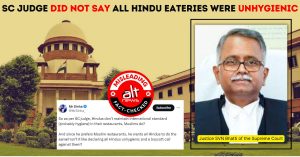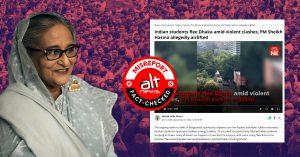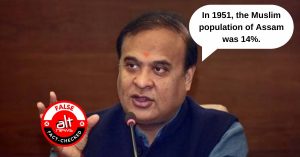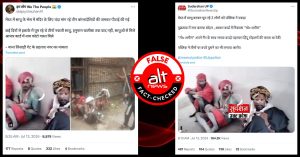Should a public institution like UIDAI and its Chief Executive Officer block common citizens from following them on Twitter? It is shocking to learn that UIDAI and its CEO have not only blocked people but denied it when asked about it in a RTI.
An RTI was raised by Sushil Kambampati asking UIDAI for the list of Twitter handles blocked by it and its CEO. The RTI also asked for the reasons for blocking and details of the policy on the basis of which such a decision to block was taken. In its response dated April 18, 2017, UIDAI denied blocking anyone and answered the remaining questions as “not applicable”. Even a question about who operates the Twitter accounts was answered as “not applicable”.
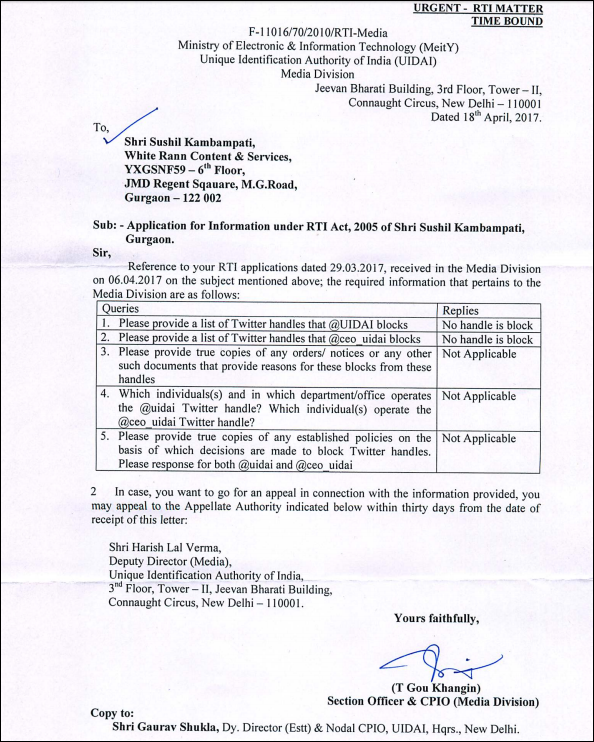
Alt-News in its investigation found a number of handles who have been blocked either by @UIDAI or Dr A.B.P. Pandey (@ceo_uidai) or both.
Case 1
On Feb 28, 2017, the handle “Rethink Aadhaar” @no2uid, had tweeted that it was blocked by both @UIDAI and @ceo_uidai. It was blocked by UIDAI the day after it highlighted the complaint of a student who was denied scholarship because of not having Aadhaar.
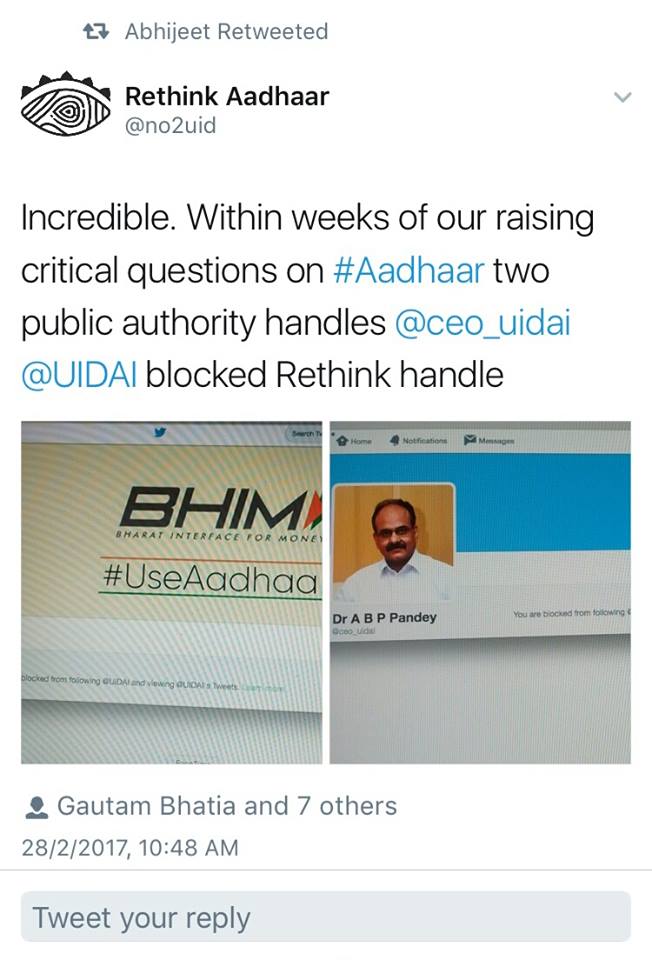
Case 2
On March 29, 2017 Twitter user Percy @wiredal tweeted his surprise at being blocked by @ceo_uidai
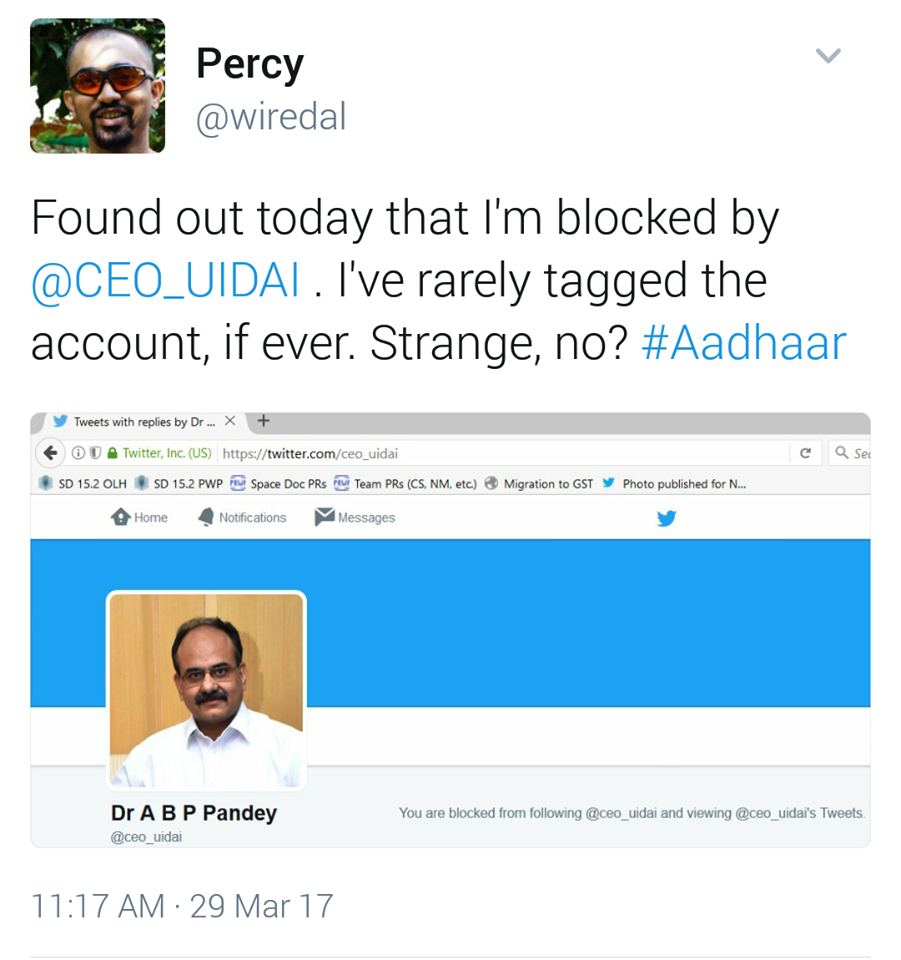
Case 3
Anupam Saraph @AnupamSaraph was blocked on March 28, 2017 for his queries on Aadhaar.
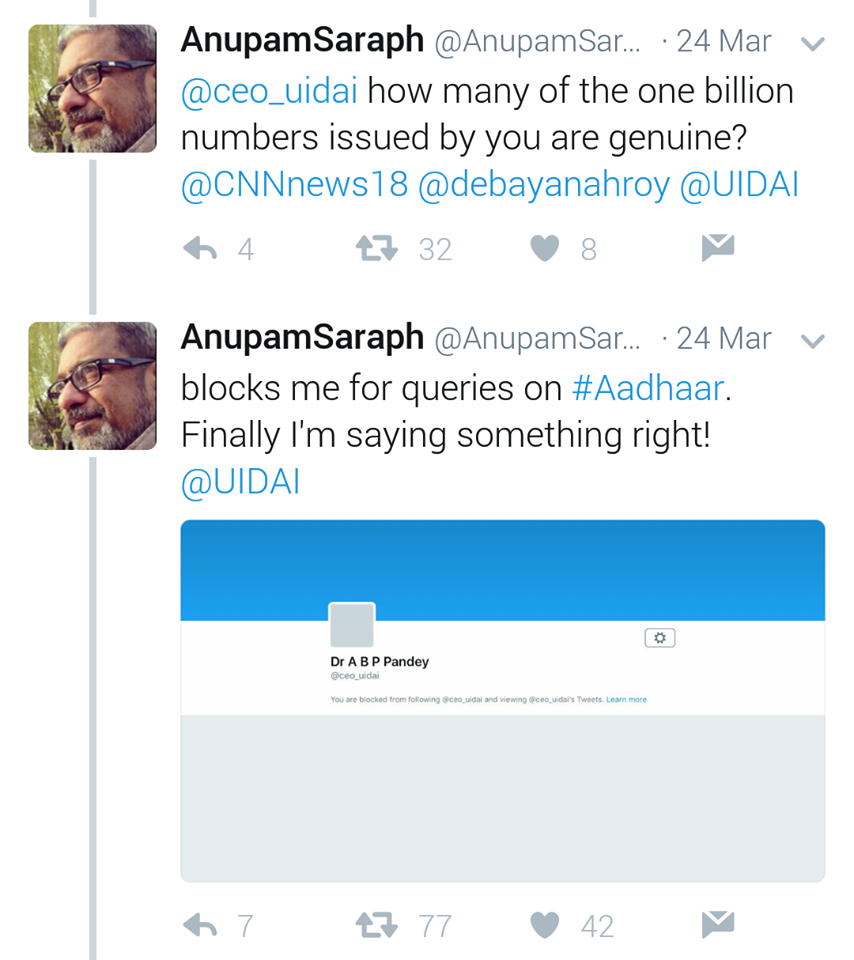
Case 4
@Stupidosaur, who is perhaps one of the most vocal critics of Aadhaar was blocked by @UIDAI in 2016 itself.
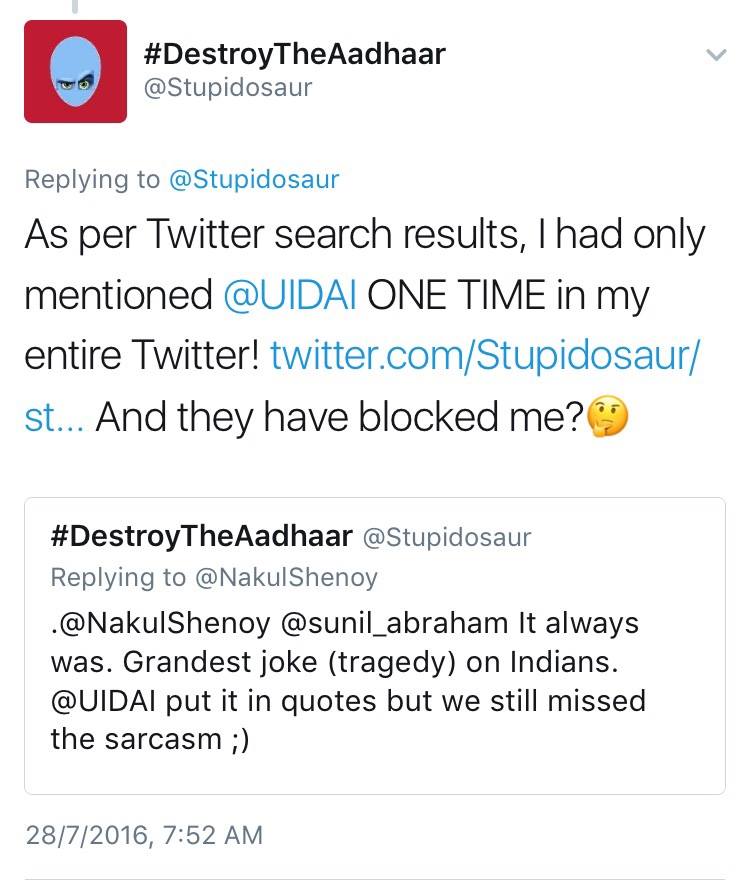
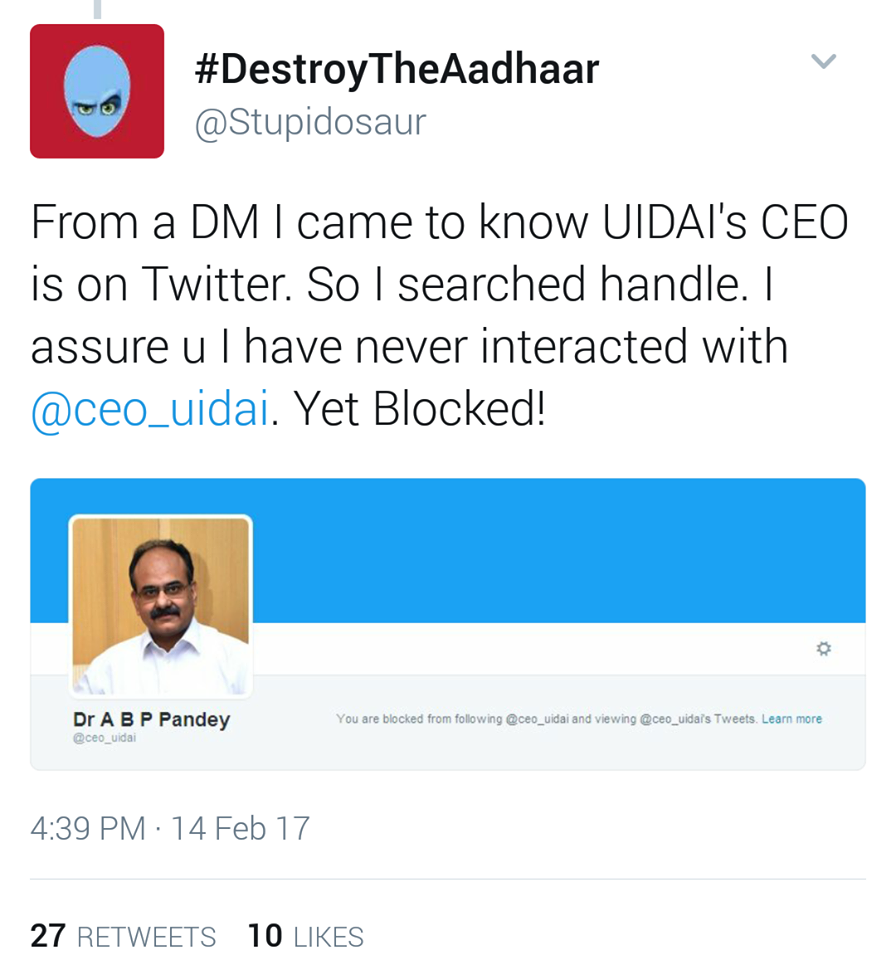
The above handles may have been critical of Aadhaar and may have voiced their criticism. They have raised their questions, many of which are genuine concerns to UIDAI and its CEO. Here are some more examples of people on Twitter complaining about being blocked by official UIDAI Twitter accounts
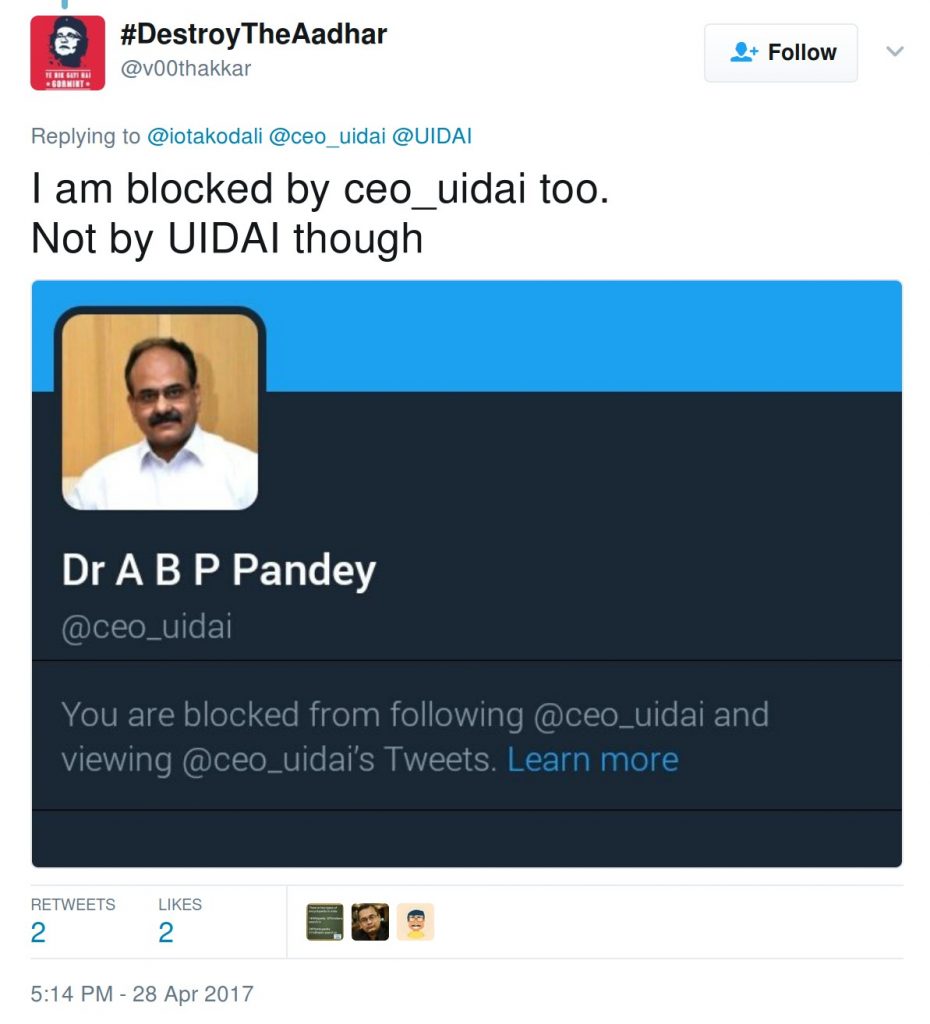
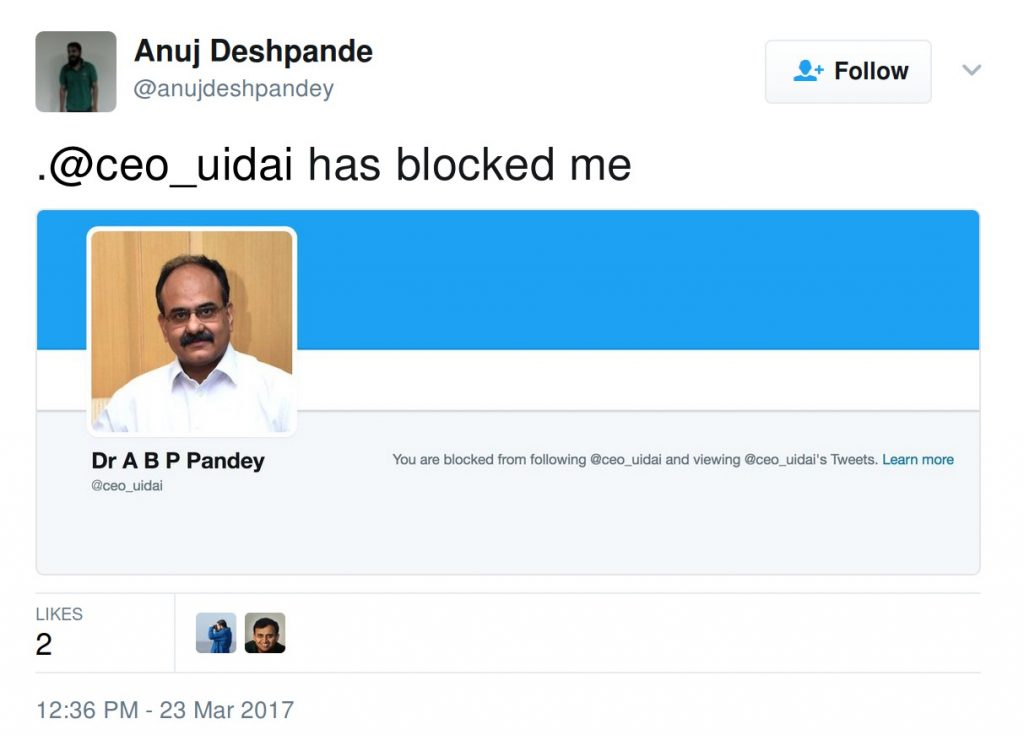
This brings us to the important question as to whether a public authority like UIDAI should be allowed to block common citizens from following it on Twitter? UIDAI is a statutory authority established under the provisions of the ‘Aadhaar Act 2016’ by the Government of India, under the Ministry of Electronics and Information Technology (MeitY). Its Twitter account shares information and provides a forum for the general public to ask questions and raise their concerns. Can this forum be denied to some as per the whims and fancies of those operating the account, without any valid reason and without following a fair process?
Twitter user @aparatbar who is also a lawyer has summarized the issue well in a series of tweets. He calls it “unconstitutional” for @ceo_uidai and @UIDAI to block people from following them on Twitter. “Public authorities who disseminate information cannot pick & choose who can interact with them. Impacts the right to know and correspond”. He goes on to question the process followed to block people on twitter, whether there was a “Notice to persons? Opportunity of hearing? Reasoned order?”
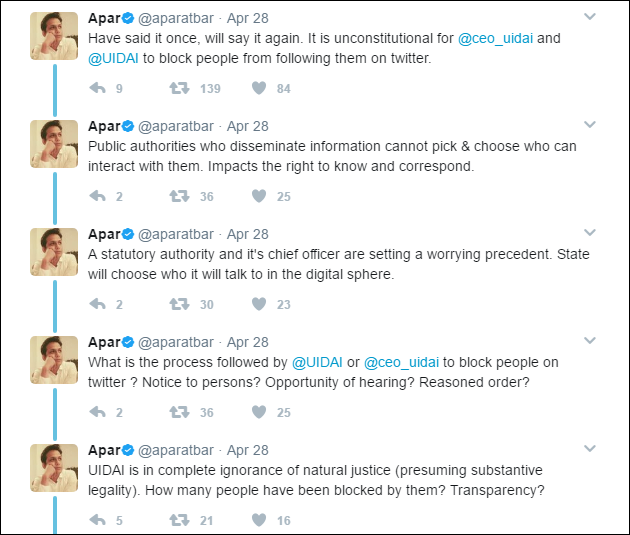
It is clear from the above examples that contrary to what is claimed in the RTI reply, both @UIDAI and @ceo_uidai have blocked people from following them on Twitter. Why then did UIDAI give such an obviously incorrect reply to the RTI? Such a reply undermines the credibility of UIDAI and makes a mockery of the process of RTI.
After the response to the RTI became public and outrage built up on twitter, at least two of the blocked users reported that they have now been unblocked. Did UIDAI scramble to unblock accounts as it saw outrage build up on Twitter?
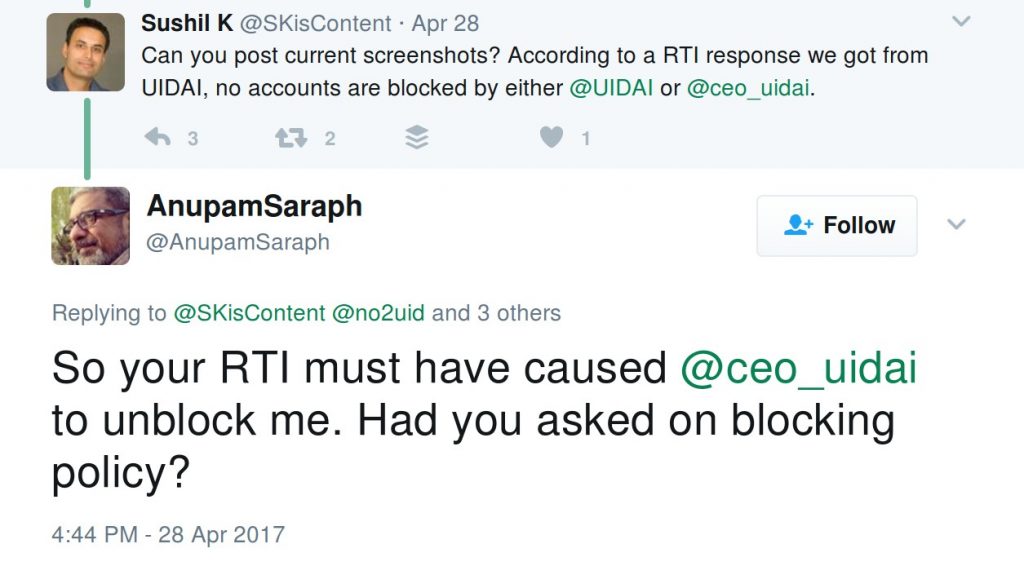
Was it an oversight or a deliberate attempt to mislead? We would like to believe it is the former and look forward to a clarification from UIDAI as to how such a misleading reply was given to the RTI. Needless to say, we are also waiting for a truthful answer to the questions raised in the RTI.
Independent journalism that speaks truth to power and is free of corporate and political control is possible only when people start contributing towards the same. Please consider donating towards this endeavour to fight fake news and misinformation.

